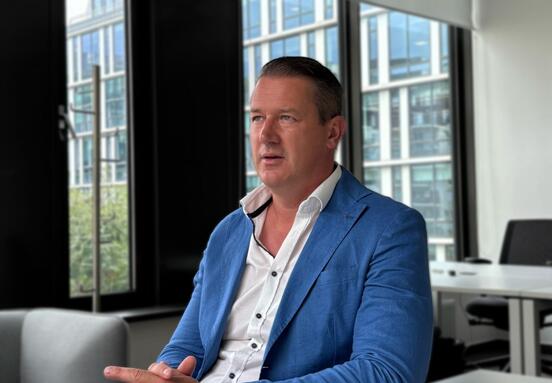- How would you briefly summarise CBRE’s last year?
- CBRE had another record-breaking year in terms of revenue and headcount growth (now 140 full-time employees) which solidifies our position as the market leading commercial real estate advisor in Hungary. This is a huge achievement for the company, and we are grateful to our clients for their continued trust and loyalty to the company.
- What are your recent plans?
- CBRE has just started a Hotel Department which is another very exciting and dynamic service we can offer to our clients. Further information on this will be released shortly.
- What is Budapest’s role is your CE portfolio? How important are we?
- Budapest is one of the key capitals of the region and clearly an influencing city for occupiers, landlords and investors. CBREs strong network across all service lines means we have real-time information on clients and prospective clients’ needs, and can ensure our teams in the relevant geography are prepped and ready to assist them as and when they want to enter the market.
- The real estate sector celebrates itself as if it were no tomorrow. How long does the fiesta take?
- The market is enjoying one its strongest spells ever, and this is the question people are asking. However, for the meantime, Hungary’s GDP looks promising and the sentiment is very positive for 2019. Clearly we have some fundamental issues which we need to monitor such as increasing construction prices and low unemployment, but these are issues shared on a CEE if not a pan-EMEA level.
- Vacancy rates are down like never before. What are the consequences?
- Vacancy rates being at their lowest levels ever are symptomatic of wider market forces. The strong occupiers demand for quality space and headcount in Budapest has resulted in the vacancy rate reducing, coupled with the length of time it takes for developers to construct new solutions for them. Much of these new properties are pre-leased or enjoying very strong interest from occupiers. Rents are increasing and incentives are shortening. It is a very good time to be a Landlord, and slightly more expensive to be an occupier!
- What are tenants’ most important expectations when they rent an office? In fact, how important are green/environmental ratings (LEED, BREEAM, HQE, DGNB) for tenants?
- Green ratings are no longer just a marketing gimmick. Both LEED and BREEAM ratings require structural and design intelligence to be applied to the buildings in order to secure the ratings, and all new buildings are well planned from both a design and technology perspective. This allows Service Charges to be kept as low as possible, and for tenants to be populated in an as efficient configuration as possible – leading to cost savings for the occupier. WELL certification is also becoming increasingly popular, although it is still not used by that many Developers as of today. WELL essentially rates the buildings performance internally, and evaluates the benefit / well-being of the tenants themselves. Given the historical low unemployment rates, occupiers need to recruit and more importantly retain their staff – and this is where green buildings and WELL certified buildings play a hard factor in decisions making. Never has it been so important to build the most functional and healthy building in Budapest office market history, than now.
- How is your life like an expat in Budapest?
- Well I came here in August 2008 for 1 year and never left! It is incredible how much the cityscape and feeling has changed over the last 10 years. Budapest has really evolved and matured over the years and it comes as no surprise that Budapest is climbing up and occupies the 76th place in Mercer’s 2018 quality of living list on “the most liveable cities around the world”.
Irodakereso.info








